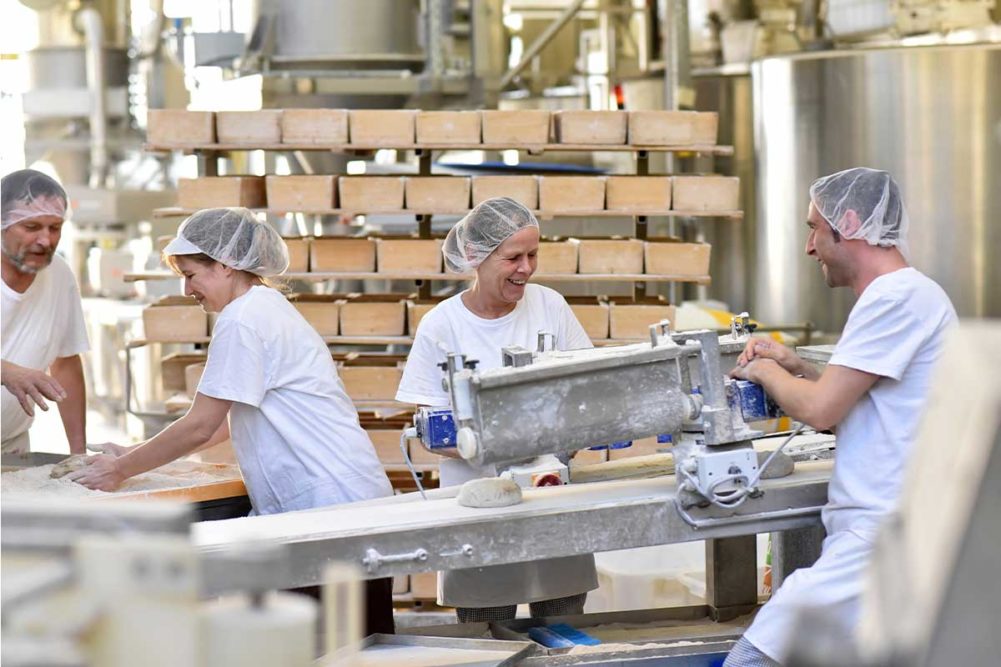Bakeries may successfully create a quality food safety program, but it may be easy to fall off the path when the labor needed to implement it is constantly shifting and in short supply. To overcome this challenge, bakeries must establish a robust food safety culture that all employees immediately buy into.
“Ultimately, creating a strong food safety culture requires a comprehensive approach that combines training, education, communication and consistent reinforcement of safe practices throughout the bakery,” said Lance Roberie, founder, Food Safety and Quality Services.
Nathan Mirdamadi, food safety manager, Commercial Food Sanitation, noted that when building a food safety culture, the old adage ‘actions speak louder than words’ rings especially true.
“Talking about culture is critically important, but a bakery must be consistent in all its actions — and inactions — to reinforce their beliefs,” he said.
This consistency must start at the highest level of a bakery. If senior leadership is bought in and leads by example, a strong food safety culture can disseminate throughout all levels.
“The food safety program and its associated elements are only as good as the eyes of the people responsible to live it each day,” said Steve Robert, global vice president of sales, marketing and product innovation, AIB International. “It’s from the top down, and if people see that the leaders care about not just what they say, but what they do. For example, if they see something on the floor as they are walking in the facility and they pick it up and put it in the garbage, they are sending a clear message to all observing that this is the right thing to do.”
Once team members on the floor are engaged, having them demonstrate the food safety program to others can be an even bigger boost to the bakery’s culture, emphasized Gina Reo, president of Quality Assurance Strategies.
“Hearing it from the shop floor folks is a big message to all the team members versus someone in leadership constantly overseeing that someone’s doing the right thing,” she said.
Rewarding employees when they follow proper protocols is another key to keeping them motivated.
“It’s not always about catching them doing something wrong,” she said. “You want a positive attitude. Make sure the morale is engaged and ensure as many team members as possible on the shop floor are involved and participating in their training.”
Aspire Bakeries’ Food Safety Hero program, for example, recognizes employees each month who demonstrate exceptional commitment to food safety practices.
“During our food safety week and World Safety Day, Aspire Bakeries celebrates our food safety successes, recognizes our Food Safety Heroes, provides an opportunity for all employees to make or renew their Food Safety Pledge and engages all employees throughout a fun, food safety activity-packed week,” said Des Flahive, senior vice president, food safety and quality assurance, regulatory and compliance, Aspire Bakeries.
Disseminating a food safety culture requires a bakery team to live and breathe it every day without compromise, Mr. Robert said. This includes clear communication between management and staff whenever potential problems are identified, as well as consistent reminders throughout the facility.
“Visual aids, signage and posters in the workplace can serve as constant reminders of safe practices,” Mr. Roberie said. “Encouraging open communication, feedback and reporting of any potential hazards or concerns further reinforces the culture of food safety.”
Building culture across facilities
While one bakery may foster a strong food safety culture, it may be difficult for companies to disseminate that culture across all their facilities, as each one has unique production demands, leadership styles and workforces.
Ms. Reo noted that a companywide food safety culture requires senior leadership across facilities to be engaged and spread a consistent message.
Regional and companywide meetings are an effective way for companies to build this unified message, as well as for bakeries to share their successes and obstacles, Mr. Robert said.
“Each site faced their own individual challenges, and how they overcome those challenges can give insights as to how other sites can solve similar challenges,” he said.
Another way to disseminate a food safety culture is through cross-pollination, Ms. Reo observed.
“Don’t be afraid to bring people out of their facilities and bring them to other plants to do training, because there’s learning to be had on both ends,” she said. “It really helps to solidify the messaging and bring back learnings to everybody.”
Mr. Flahive noted each of Aspire Bakeries’ facilities’ food safety and sanitation teams are supported by a corporate food safety team. Aspire also has a standardized document management system and shares food safety goals and key performance indicators.
“Food safety is everyone’s accountability, is owned by everyone, and food safety pledges are made by all associates,” he said.
This article is an excerpt from the July 2023 issue of Baking & Snack. To read the entire feature on Food Safety, click here.





